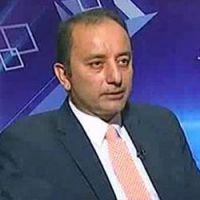Energy Fraud: Nawaz Sharif’s advisor Musaddiq Malik, Mian Mansha and Abdullah Yousuf in Power Plant Scam

A letter about the energy policy, blaming a gang of four for what is described as a con operation, had the parliamentary corridors on fire.
The thrust of the letter was that the IPPs are being paid in the name of clearing circular debt as part of a larger conspiracy. It questions the credentials of the people who are involved in the energy policy and alleges this to be a clear case of conflict of interest. The quartet is named as Mian Mohammad Mansha, his nephew Shahzad Saleem, Nadeem Babar and Saqib Shirazi of the Atlas Group.
The key players, according to the anonymous letter, are IPP power plant owners—mainly Sapphire Power, Liberty Power (Mukati Group of Karachi) and, among others, Said Power. The hired henchmen for them are Abdullah Yousaf (Chairman of IPPs Association—IPPAC), Mussadaq Malik (Special Assistant to the PM and Minister of Water and Power) and Shahid Sattar (Planning Commission official).
It gives profiles of all of them, which raises a number of questions about them but Sheeshnag keeps it for the moment and only mentions the profile of one—Mussadaq Malik.
He is described as somebody who gets in every government from Musharraf to the Interim government and is now part of the PML (N). He is a pharmacist who first emerged as the expert of development in Nasim Ashraf’s National Commission of the Human Development. Now he comes as the biggest energy expert that this country ever saw. Most people remember him as the Jamiat’s goon from FC College in Lahore. He was recommended by Syed Babar Ali to Nawaz Sharif to which Mian Sahb readily agreed—such being the mutual back-scratching arrangement among the tycoons. It is yet to be seen what Syed Babar Ali, otherwise a rare respected tycoon, saw in this pharmacist-turned-developer-
The letter explains in detail the energy policy of 1994 and 2002 and concludes that “the project costs, operational expenses, debt repayments and return on equity is covered under the Capacity Purchase Price (CPP) invoice and the fuel cost is covered under the Energy Purchase Price (EPP). Both investors are forwarded separately by companies to NTDC/WAPDA.”
The letter gives a long detail of what it alleges to be a scam. In short, it says, “the 1994 Power Policy IPPs (total 14) continue to skim and make illegal profits on the fuel (both liquid and gas fired plants) by lying about their heat rebates (plant efficiency). Such profits are conservatively estimated to be four to five per cent. Due to delays and tariff deals, they lost the remaining cushion/padding, yet have made fabulous returns.”
“The 2002 Power Policy IPPs (total 13) over invoiced the initial project setting up cost and continue to skim and make illegal profits on operational expenses and heat rate (fuel consumption). They skim money at three levels (excluding the original project cost)—operational expense, over invoiced fuel and kickbacks from OMCs.”
The letter alleges that annual returns are in the range of 35 percent to 40 percent. “Inclusive of original project cost—a payback period of two years. Not bad.”
The letter asks some questions:
Why did the PM-designate visit Mansha’s Raiwind farm for a briefing on circular debts and energy issues? Considering that Mansha is the leader of the nine IUPPs who have invoked Government of Pakistan guarantee and is in the Supreme Court, to say the least, was it not embarrassing?
Mansha and Nadeem Babar are in the energy task force. Guess what—their key recommendation—pay IPPs. Isn’t this a conflict of interest?
Munir Malik was the lawyer of IPPs. How will he defend the case of the State as Attorney General against them?
Why did PPIB and NEPRA approve without background the checking the efficiency of diesel gensets installed at the Mansha and Atlas plants and indeed the efficiency/heat rate of all power plants set up under 2002 power policy?
Is it true that the government is giving Muzaffargarh power plant to Mansha? If so, why not bid it first?
Why doesn’t the government adjust the “stolen amounts” and then the tariff formula?
It suggests that the government should ask the IPPs to share the burden with the masses. “The full adjustment should be made in six to eight quarterly payments. This will save the government Rs 200 billion as equity for starting the mid-term programme of setting up coal fired projects. Assuming a 70/30 debt equity ratio, as used by the IPPs, the government can set up thousand MWs of power generation in next three years.”
Now, all of this seems to come from another lobby, which definitely has an interest. But they do have a point that needs to be studied. Otherwise, they have sent it to the SC for taking it up. God save us.
Source:

